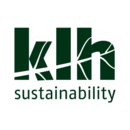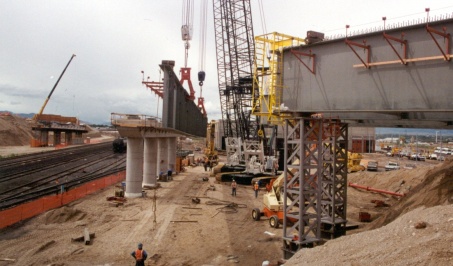ICE Low Carbon Lifed Panel
In the latest of a series of blogs by --KLH Sustainability, Kirsten Henson and Sophie Frith explain the objectives of the ICE Low Carbon Lifed Panel. Kirsten has been a contributing member of the Panel since 2012.
In November 2011 the ICE (Institution of Civil Engineers) launched Building a Sustainable Future – ICE low carbon infrastructure trajectory – 2050. The report takes a whole-life view of infrastructure and considers how benefits can be maximised and carbon minimised.
The report set out 5 priorities aimed at government and industry and 5 commitments for the ICE. The Low Carbon Lifed Panel was established to deliver these ICE commitments, and is generating two outputs for launch in early 2014:
- The first output is a high level carbon footprinting standard for infrastructure projects to generate consistency and transparency in the use of carbon as part of a wider decision-making framework. It builds on the Panel’s expertise in using carbon footprinting as a value-adding tool and draws on European Standards for the Methodology for the Assessment of the Environmental Performance for Buildings.
- The second output is a thought piece on how to encourage the UK to innovate, lower costs and improve the whole-life value of infrastructure assets. It tackles the role of codes and standards, education and industry in the transition to a low-carbon economy.
There is a widespread perception within the UK that in-house company standards for infrastructure construction are complex, confusing and sometimes contradictory. Time and experience has shown that the often constraining codes and standards act as a barrier to innovation. The “traditional” approach of using standards and specifications to set out client requirements and subsequently detail design means designers and contractors do not have the necessary freedom to innovate. Reliability and a long track-record of any given design or construction methodology ordinarily take precedence.
Inevitably, achieving the right balance will not be straightforward. It requires a shift in mind-set from “we’ve always done it this way” to a collaborative discussion. Education is required beyond the realms of our universities. Clients, manufacturers, suppliers, users, contractors and consultants need to bring their expertise and experience together to provide the right framework for innovation and to allow adequate time for innovative design.
The Low Carbon Lifed Panel attempts to address some of these barriers and provide simple tools to drive the implementation of innovation to aid economic growth within an industry renowned for being set in its ways.
Featured articles and news
Futurebuild and UK Construction Week London Unite
Creating the UK’s Built Environment Super Event and over 25 other key partnerships.
Welsh and Scottish 2026 elections
Manifestos for the built environment for upcoming same May day elections.
Advancing BIM education with a competency framework
“We don’t need people who can just draw in 3D. We need people who can think in data.”
Guidance notes to prepare for April ERA changes
From the Electrical Contractors' Association Employee Relations team.
Significant changes to be seen from the new ERA in 2026 and 2027, starting on 6 April 2026.
First aid in the modern workplace with St John Ambulance.
Ireland's National Residential Retrofit Plan
Staged initiatives introduced step by step.
Solar panels, pitched roofs and risk of fire spread
60% increase in solar panel fires prompts tests and installation warnings.
Modernising heat networks with Heat interface unit
Why HIUs hold the key to efficiency upgrades.
Reflecting on the work of the CIOB Academy
Looking back on 2025 and where it's going next.
Procurement in construction: Knowledge hub
Brief, overview, key articles and over 1000 more covering procurement.
Sir John Betjeman’s love of Victorian church architecture.
Exchange for Change for UK deposit return scheme
The UK Deposit Management Organisation established to deliver Deposit Return Scheme unveils trading name.
A guide to integrating heat pumps
As the Future Homes Standard approaches Future Homes Hub publishes hints and tips for Architects and Architectural Technologists.
BSR as a standalone body; statements, key roles, context
Statements from key figures in key and changing roles.
Resident engagement as the key to successful retrofits
Retrofit is about people, not just buildings, from early starts to beyond handover.
























Comments
To start a discussion about this article, click 'Add a comment' above and add your thoughts to this discussion page.